Related Research Articles

Rudolf Emil Kálmán was a Hungarian-American electrical engineer, mathematician, and inventor. He is most noted for his co-invention and development of the Kalman filter, a mathematical algorithm that is widely used in signal processing, control systems, and guidance, navigation and control. For this work, U.S. President Barack Obama awarded Kálmán the National Medal of Science on October 7, 2009.
The following outline is provided as an overview of and topical guide to electrical engineering.
John G. McWhirter FRS FREng FIMA FInstP FIEE FLSW is a British mathematician and engineer in the field of signal processing.
Ali H. Sayed is the dean of engineering at EPFL, where he teaches and conducts research on Adaptation, Learning, Statistical Signal Processing, and Signal Processing for Communications. He is the Director of the EPFL Adaptive Systems Laboratory. He has authored several books on estimation and filtering theories, including the textbook Adaptive Filters, published by Wiley & Sons in 2008. Professor Sayed received the degrees of Engineer and Master of Science in Electrical Engineering from the University of São Paulo, Brazil, in 1987 and 1989, respectively, and the Doctor of Philosophy degree in electrical engineering from Stanford University in 1992.
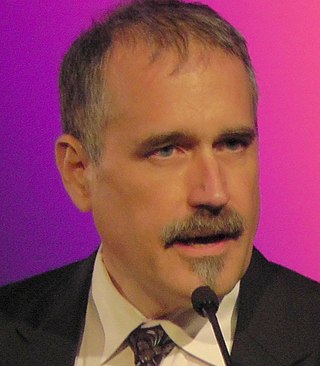
Alan Conrad Bovik is an American engineer, vision scientist, and educator. He is a professor at the University of Texas at Austin (UT-Austin), where he holds the Cockrell Family Regents Endowed Chair in the Cockrell School of Engineering and is Director of the Laboratory for Image and Video Engineering (LIVE). He is a faculty member in the UT-Austin Department of Electrical and Computer Engineering, the Machine Learning Laboratory, the Institute for Neuroscience, and the Wireless Networking and Communications Group.
Simon Haykin is an electrical engineer noted for his pioneering work in Adaptive Signal Processing with emphasis on applications to Radar Engineering and Telecom Technology. He is currently Distinguished University Professor at McMaster University in Hamilton, Ontario, Canada.

John Mathew Cioffi is an American electrical engineer, educator and inventor who has made contributions in telecommunication system theory, specifically in coding theory and information theory. Best known as "the father of DSL," Cioffi's pioneering research was instrumental in making digital subscriber line (DSL) technology practical and has led to over 400 publications and more than 100 pending or issued patents, many of which are licensed.
Sir Alistair George James MacFarlane was a Scottish electrical engineer and leading academic who served as Principal and Vice Chancellor of Heriot-Watt University, Edinburgh, and Rector, University of the Highlands and Islands.
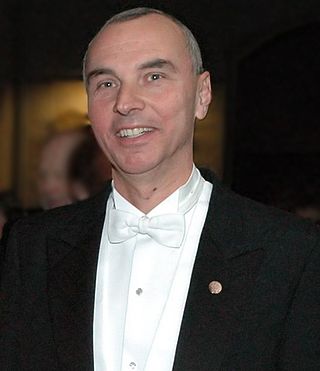
Peter (Petre) Stoica is a researcher and educator in the field of signal processing and its applications to radar/sonar, communications and bio-medicine. He is a professor of Signals and Systems Modeling at Uppsala University in Sweden, and a Member of the Royal Swedish Academy of Engineering Sciences, the United States National Academy of Engineering, the Romanian Academy, the European Academy of Sciences, and the Royal Society of Sciences in Uppsala. He is also a Fellow of IEEE, EURASIP, IETI, and the Royal Statistical Society.

Harold Vincent Poor is the Michael Henry Strater University Professor of Electrical Engineering at Princeton University, where he is also the Interim Dean of the School of Engineering and Applied Science. He is a specialist in wireless telecommunications, signal processing and information theory. He has received many honorary degrees and election to national academies. He was also President of IEEE Information Theory Society (1990). He is on the board of directors of the IEEE Foundation.
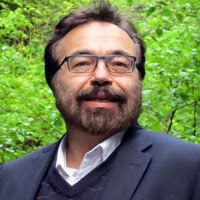
Georgios B. Giannakis is a Greek-American Computer Scientist, engineer and inventor. He has been an Endowed Chair Professor of Wireless Telecommunications, he was Director of the Digital Technology Center, and at present he is a McKnight Presidential Chair with the Department of Electrical and Computer Engineering at the University of Minnesota.
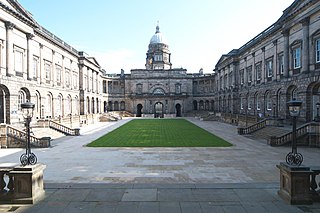
The Regius Chair of Engineering is a royal professorship in engineering, established since 1868 in the University of Edinburgh, Scotland. The chair is attached to the University's College of Science and Engineering, based in the King's Buildings in Edinburgh. Appointment to the Regius Chair is by Royal Warrant from the British monarch, on the recommendation of Scotland's First Minister.
Anthony George Constantinides FREng FIET is a professor of signal processing and the founder of the Communications and Signal Processing Group of the Department of Electrical and Electronic Engineering in Imperial College London. He has been actively involved with research in various aspects of digital filter design, digital signal processing, and communications for more than 40 years. Professor Constantinides' research spans a wide range of digital signal processing and communications, both from the theoretical as well as the practical points of view. His recent work has been directed toward the demanding problems arising in Financial signal processing and he now leads the Financial Signal Processing Lab in the EEE department of Imperial College London.
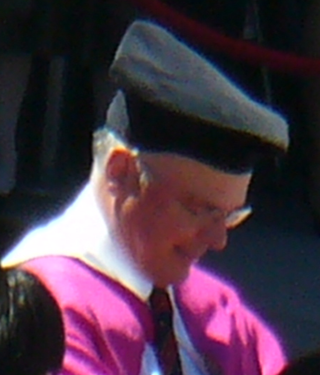
David A. B. Miller is the W. M. Keck Foundation Professor of Electrical Engineering at Stanford University, where he is also a professor of Applied Physics by courtesy. His research interests include the use of optics in switching, interconnection, communications, computing, and sensing systems, physics and applications of quantum well optics and optoelectronics, and fundamental features and limits for optics and nanophotonics in communications and information processing.
Palghat P. Vaidyanathan is the Kiyo and Eiko Tomiyasu Professor of Electrical Engineering at the California Institute of Technology, Pasadena, California, USA, where he teaches and leads research in the area of signal processing, especially digital signal processing (DSP), and its applications. He has authored four books, and authored or coauthored close to six hundred papers in various IEEE journals and conferences. Prof. Vaidyanathan received his B.Tech. and M.Tech. degrees from the Institute of Radiophysics and Electronics, Science College campus of University of Kolkata, and a Ph.D. degree in Electrical Engineering from University of California Santa Barbara in 1982.

Jeff Collins was a British electrical engineer who directed and researched experimental physics, robotics, microelectronics, communications technologies and parallel computing.
Suhash Chandra Dutta Roy is an Indian electrical engineer and a former professor and head of the department of electrical engineering at the Indian Institute of Technology, Delhi. He is known for his studies on analog and digital signal processing and is an elected fellow of all the three major Indian science academies viz. Indian Academy of Sciences, Indian National Science Academy, National Academy of Sciences, India as well as the Institute of Electrical and Electronics Engineers, Institution of Electronics and Telecommunication Engineers, Systems Society of India and Acoustical Society of India, The Council of Scientific and Industrial Research, the apex agency of the Government of India for scientific research, awarded him the Shanti Swarup Bhatnagar Prize for Science and Technology, one of the highest Indian science awards for his contributions to Engineering Sciences in 1981.
John Mavor was a pioneer in the design of MOS transistors and Charge-Coupled Devices (CCDs) for signal processing. During his career as an educator and researcher at the University of Edinburgh he was appointed Professor before becoming Dean of the Faculty of Science and Engineering. He was subsequently appointed as Principal and Vice-Chancellor at Edinburgh Napier University.
Prof Maurice George Say FRSE (1902–1992) was a 20th-century British electrical engineer who served as the head of electrical engineering at Heriot-Watt College for 30 years. Friends knew him as Dick Say and in authorship he is M. G. Say.
Branko Jeren is a Croatian university professor, former rector of the University of Zagreb. He formerly served as the Croatian Minister of Science and Technology in the fourth and the fifth Government of the Republic of Croatia from February 1993 to November 1995.
References
- ↑ "Senior Honorary Professorial Fellow: Peter Grant". University of Edinburgh. 2009. Retrieved 11 July 2015.
- 1 2 3 4 5 6 7 8 9 10 11 12 13 14 15 16 "Prof Peter Grant". University of Edinburgh. 2015. Retrieved 11 July 2015.
- 1 2 "Science Advisory Committee". Scottish Science Advisory Council. 3 May 2002. Retrieved 11 January 2013.
- 1 2 "About the James Clerk Maxwell Foundation". James Clerk Maxwell Foundation. 8 July 2024. Retrieved 25 July 2024.
- ↑ Peter Mitchell Grant publications indexed by Microsoft Academic
- ↑ "List of Fellows".
- ↑ "Annual Review 2006 : People, Honours and Awards". www1.hw.ac.uk. Archived from the original on 13 April 2016. Retrieved 30 March 2016.
- ↑ "List of Honorary Graduates and Fellows". Edinburgh Napier University. January 2011. Retrieved 11 January 2013.